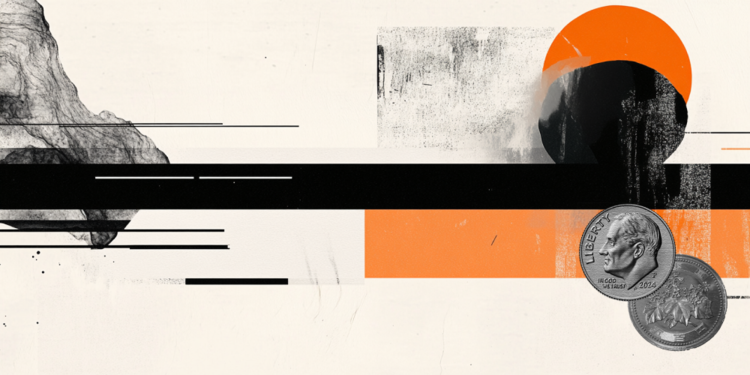The US public and even some health experts may have underestimated the Covid-19 vaccine made by Janssen, a division of Johnson & Johnson, new data shows. And there is evidence that the immunizer may still play an important role in the future.
A study published in the medical journal JAMA Network Open found that Janssen’s vaccine remains durable and effective, even as cases caused by the Delta variant increase.
It was 76% effective overall in preventing Covid-19 infections and 81% effective in preventing Covid-19-related hospitalizations. The study also showed that the vaccine provides lasting immunity for at least six months after injections.
And a CNN analysis of information collected by the U.S. Centers for Disease Control and Prevention (CDC) showed the vaccine had the lowest infection rate of all immunizers since the week ending Dec. available data.
In January, during the Omicron outbreak, infections were highest among those who received the Pfizer/BioNTech vaccine, followed by those who received Moderna (not available in Brazil). Those vaccinated with the Johnson & Johnson injection had the lowest incidence of infections.
In the week ending January 22, there were 650 infections per 100,000 people with the DA Janssen vaccine. With Moderna, it was 757 per 100,000, and with Pfizer, the rate was 862 per 100,000.
Unvaccinated people were particularly vulnerable to becoming sick during the Omicron and Delta outbreaks, just as they were with the original version of the coronavirus. They were 3.2 times more likely to get sick than people who got the Janssen vaccine. The unvaccinated were 2.8 times more likely to become infected than those who received Moderna and 2.4 times more likely than those who received Pfizer.
“What we saw during the Delta outbreak is that all three vaccines protected very, very well. But those differences were relatively small,” said Dan Barouch, director of the Center for Virology and Vaccine Research at Beth Israel Deaconess Medical Center in Boston. He helped develop and study Janssen’s vaccine.
“But what we’ve seen over time is that those differences have narrowed,” he said. “And in the first week of December, what we saw in the data is that lines cross,” with incidence rates for the Janssen vaccine becoming lower than the others.”
‘Reassuring’ data for Jassen vaccinees
As of March 2021, the Johnson & Johnson vaccine was the third to be authorized by the US Food and Drug Administration, and the initial response was quieter than the initial authorizations of the Pfizer/BioNTech and Moderna mRNA vaccines. .
Doses work differently. mRNA vaccines provide blueprints, essentially, that train your body to fight that specific infection and any similar infections along the way. Adenovirus vector vaccines, such as those from Janssen, use a virus that can act like a Trojan horse. But instead of soldiers jumping, the adenovirus releases genes that encode the coronavirus spike protein.
Janssen’s vaccine also stood out for other reasons: it came as a convenient single dose and required no special refrigeration, whereas mRNA vaccines required two doses, and Pfizer needed special cold storage. Flexibility was attractive to people who were afraid of injections or didn’t have time to take two shots. It was also better for countries without a solid health infrastructure.
But the performance tempered some of the enthusiasm around her, especially from the audience.
While mRNA vaccines were hailed for astonishing effectiveness of over 90%, the news that Janssen’s was 65% effective in preventing symptomatic Covid-19 among clinical trial volunteers disappointed some.
From the beginning, Janssen’s vaccine supply was more limited. After the vaccine was authorized, the US federal government briefly paused its use due to safety concerns surrounding rare blood clotting events. Even after vaccinations resumed, the pace of vaccination with Janssen never recovered.
In December, the CDC changed its recommendations to say that photos taken by Moderna and Pfizer/BioNTech are preferred over Janssen. He also asks that people who have had the Janssen vaccine receive a booster of one of the mRNA vaccines two months later.
The protection that Covid-19 vaccines offered has diminished over time, and none of them work as well against the variants that have emerged since the original coronavirus emerged. But science is starting to show that people who have had the Johnson & Johnson Covid-19 vaccine may have some advantage.
Barouch told CNN that he was “not surprised” to see that the durability of the Johnson & Johnson vaccine appears to last longer than that of the mRNA vaccines — Pfizer and Moderna — based on the incidence of breakthrough infections.
mRNA vaccine technology has been shown to rapidly elicit a potent and robust immune response after vaccination, but this can diminish over time. Johnson & Johnson’s virus vector platform may not trigger such a powerful immune response in the short term, but it is known to have strong durability.
“Over time, the effectiveness of the Pfizer and Moderna vaccines declines, the effectiveness of the Janssen vaccines remains stable, and so it’s exactly as you would predict: that they will converge and then cross,” Barouch said.
Janssen’s vaccine may also have “a particular advantage,” he said.
“The immune system is actually made up of two arms: the antibody side and the T cells. And the type of T cells that are essential for preventing serious disease are called CD8 T cells,” Barouch said. “The Johnson & Johnson vaccine creates better CD8 T cells than Pfizer and other mRNA vaccines, so it may have a particular advantage for variants like Omicron that have largely escaped antibody responses.”
Overall, Barouch called this data “very reassuring” for recipients of the Janssen vaccine.
“They should be sure they’ve received a vaccine that offers very good protection over a long period of time,” Barouch said. “And I think the second message is that people should learn from this new data in terms of considering boosters as well.”
Immunizer perspectives
David Montefiori, a virologist at Duke University Medical Center, said, “Janssen’s vaccine has had a bad reputation because of its effectiveness, but the stability of the response is intriguing.”
The level of antibodies decreased with all vaccines during the Omicron outbreak, and this could mean that people need an additional booster. More research is needed to find out.
An unpublished National Institutes of Health study looking at a combination and combination vaccine strategy had good results when Johnson & Johnson was included, Montefiori said.
“In people who received the Pfizer vaccine initially and were then boosted with the Janssen vaccine, these people produced very high levels of neutralizing antibodies to Omicron: 10 times higher than people who received two doses with the J&J vaccine alone.” he said.
“So the Johnson & Johnson vaccine could be a good booster for people who initially received an mRNA vaccine.”
Johnson & Johnson vaccine can be used for primary doses or as a booster, but the CDC says the Pfizer and Moderna vaccines are recommended in most situations because of the risk of serious adverse events with the Janssen vaccine.
The immunizer has been associated with rare cases of blood clots with low platelets, known as thrombosis with thrombocytopenia syndrome. “This occurs at a rate of about 3.83 cases per million doses of Janssen and has resulted in deaths,” says the CDC.
Angela Branche, an infectious disease specialist and an associate professor of medicine at the University of Rochester, said the Janssen vaccine’s side-effect profile “remains of concern for some groups where that risk is high.” Women ages 30 to 49 are at increased risk for this rare adverse event, says the CDC.
But if this research succeeds, Janssen’s vaccine could be useful as a booster only for certain populations.
“For some groups where the risk of developing serious blood clots is not very high, such as older adults, this may be a good strategy,” Branche said.
Montefiori said the vaccine deserves further study.
“I think there may still be a place for the Johnson & Johnson vaccine in the long-term picture of this pandemic,” Montefiori said.
With information from Jacqueline Howard and Tasnim Ahmed of CNN*
Source: CNN Brasil







